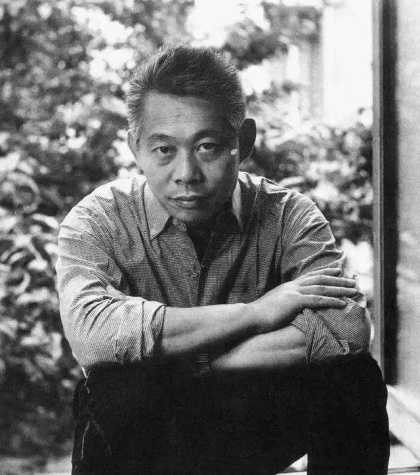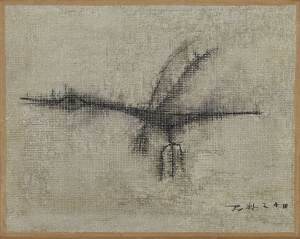Zao Wouki, a French-Chinese painter, was born in a literary family in Peiping. His genealogy can be traced back to the royal family of Prince of Yan in the Northern Song Dynasty. He joined Hangzhou School of Fine Arts in 1935 and was taught by Lin Fengmian. He went to France for education in 1948 and settled in France. He was awarded the title of Grand Officier de l'Ordre de la Légion d'honneur, Commandeur Ordre des Arts et des Lettres, citoyen d'honneur de Paris, as well as the Japanese Praemium Imperiale for painting which is regarded as a Nobel Prize among the art world. On April 9, 2013, Zao Wouki passed away at the age of 92 in Vidy, Switzerland.
Born in a literary family, coupled with his talent, Zao Wouki had the ambition to be a painter since childhood.
When he first moved to France, he had resistance to Chinese culture, yet later he gradually understood the Chinese culture and integrated it with his works.
His early works mainly focused on Cezanne, Matisse, and Picasso. His style of painting was close to Western Impressionism, focusing on figures and landscapes. Since 1951, he was inspired by Kley's paintings and began to try abstract painting. Although Kley's works are quite diffeent from Chinese paintings, Zao Wouki saw the similarities between them, that is, turning objects into symbolic symbols, which brought inspiration to Zao Wouki. He adapted abstract symbols like Oracle or Chinese bronze inscriptions to express the oriental charm from the emptiness and colour of space. Later, he began to get rid of the symbols and even no longer set a title for his work. Since his artwork "Cloud" in 1958, Zao Wouki only marked the creation date on the back of the canvas.
In the 1960s and 1970s, he used various innovative combinations to express his internal needs and feelings, discarded all the rules in his creative methods and allowed the brush to paint a large extent of colours on the canvas more freely. After the 1980s, his works was infused with more tenderness and spirit.
It is said that art has no borders. During his 58-year creative career in France, Zao Wouki expressed the spirit of traditional Chinese art and culture with the abstractionism of Western oil painting. He rediscovered the traditional Chinese culture and its splendidness.


